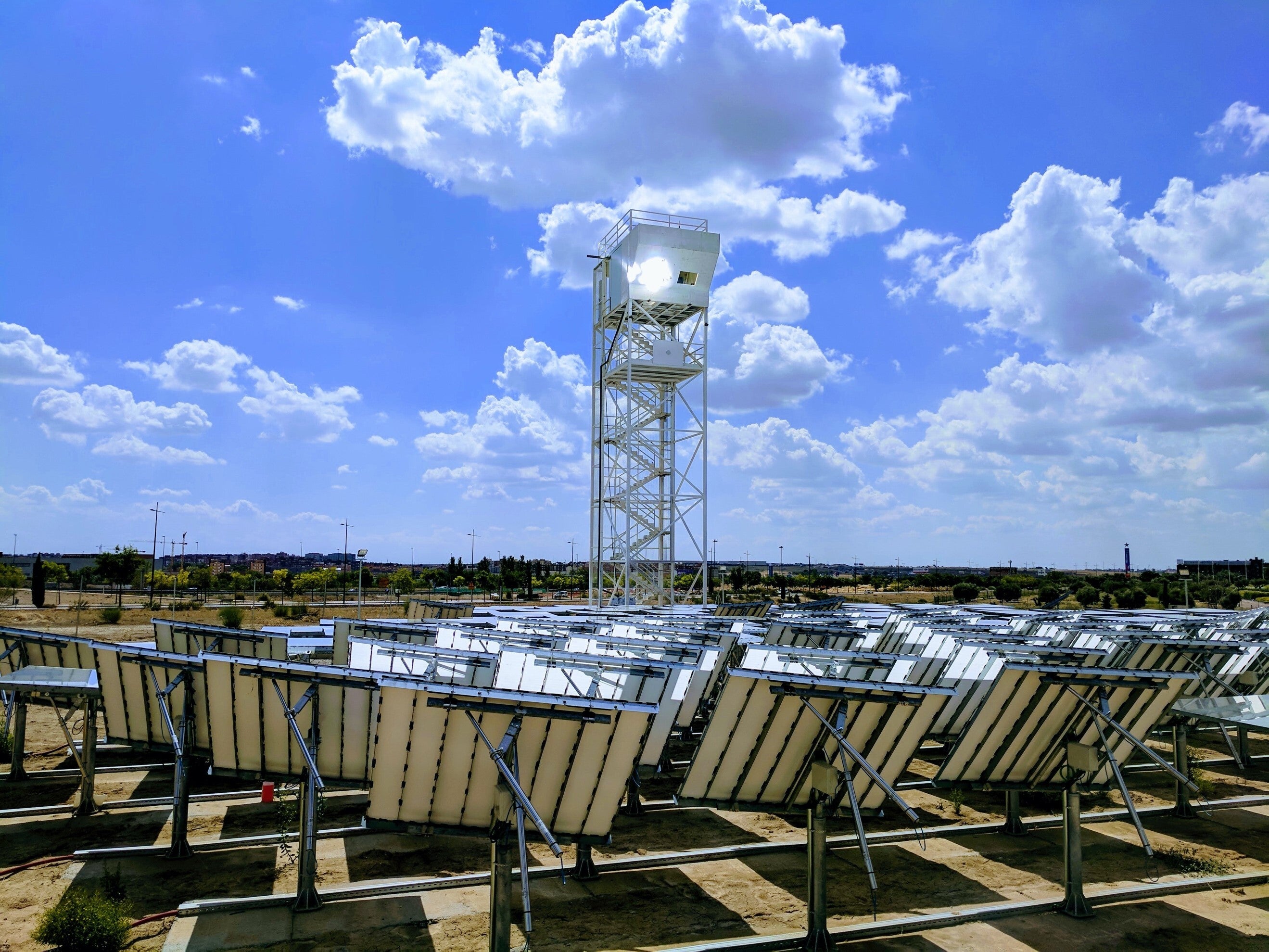Solar-powered tower creates ‘first carbon neutral’ jet fuel

Your support helps us to tell the story
From reproductive rights to climate change to Big Tech, The Independent is on the ground when the story is developing. Whether it's investigating the financials of Elon Musk's pro-Trump PAC or producing our latest documentary, 'The A Word', which shines a light on the American women fighting for reproductive rights, we know how important it is to parse out the facts from the messaging.
At such a critical moment in US history, we need reporters on the ground. Your donation allows us to keep sending journalists to speak to both sides of the story.
The Independent is trusted by Americans across the entire political spectrum. And unlike many other quality news outlets, we choose not to lock Americans out of our reporting and analysis with paywalls. We believe quality journalism should be available to everyone, paid for by those who can afford it.
Your support makes all the difference.Scientists have invented a solar-powered fuel production system that they claim could help the aviation industry become carbon neutral.
The innovative tower design uses the Sun’s energy to facilitate the process of converting water (H20) and carbon dioxide (CO2) into liquid hydrocarbons like kerosene.
“We are the first to demonstrate the entire thermochemical process chain from water and CO2 to kerosene in a fully-integrated solar tower system,” said Professor Aldo Steinfeld from ETH Zurich.
“With our solar technology, we have shown that we can produce synthetic kerosene from water and CO2 instead of deriving it from fossil fuels.
Professor Steinfeld added: “The amount of CO2 emitted during kerosene combustion in a jet engine equals that consumed during its production in the solar plant.
“That makes the fuel carbon neutral, especially if we use CO2 captured directly from the air as an ingredient, hopefully in the not-too-distant future.”
The system forms part of the European Union’s SUN-to-LIQUID project, which aims to find synthetic alternatives to fossil-derived fuels.
In theory, these synthetic fuels generate only as much CO2 during combustion as was removed from the atmosphere in their production. However, the production of machinery to create the fuels could create additional carbon emissions.
If successfully implemented at scale, it could contribute to the decarbonisation of air transport, which accounts for roughly 5 per cent of global anthropogenic emissions causing climate change.
Experts have warned that carbon neutrality would not necessarily result in climate neutrality, with Professor Johan Lilliestam from the Institute for Advanced Sustainability Studies telling On Carbon earlier this year that a plane’s contrails should also be taken into consideration.
“Contrails are of particular concern, as some estimates suggest they cause a similar amount of warming as carbon emissions from aviation,” he said.
“It is not clear how large this effect is or how it can be controlled. However, because solar fuels are chemically cleaner than fossil fuels, burning solar fuels causes less soot, resulting in far fewer contrails. So solar fuels are better in that respect as well, probably much better, but there could be a small residual climate effect left over from cloud formation.”
The research was published in the scientific journal Joule on Wednesday.
Join our commenting forum
Join thought-provoking conversations, follow other Independent readers and see their replies
Comments